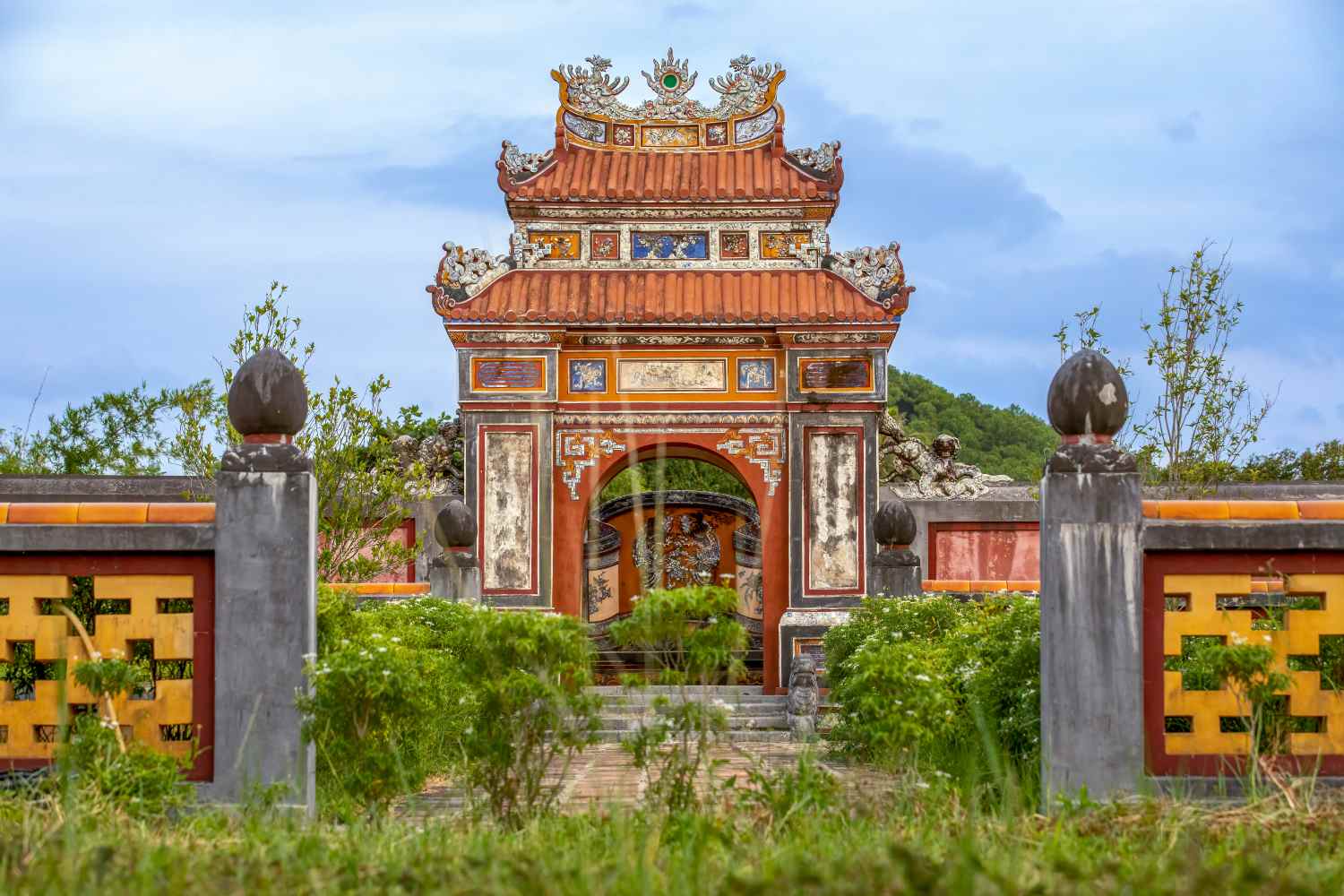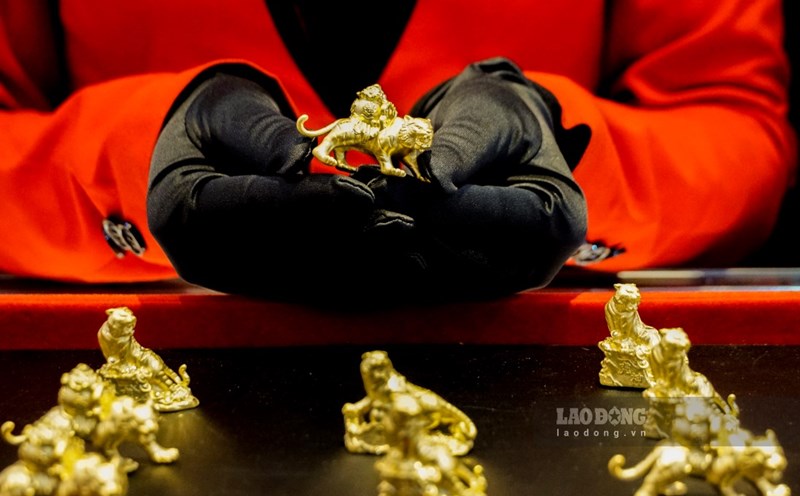Theo the book "Việt Nam sử lược" (Trần Trọng Kim, NXB Tân Văn), Nguyễn Phúc Ưng Chân (1852 - 1883), whose alias is Nguyễn Phúc Ưng Ái. He is the second son of Thoại Thái vương Nguyễn Phúc Hồng Y and his mother Trần Thị Nga.
Vua Tự Đức was smallpox when he was young and had no children, so he adopted the children of his brothers and sisters. In 1869, Tự Đức adopted Ưng Ái, gave him the name Ưng Chân, and sent him to Dục Đức Street, entrusting him to be taken care of and educated by Hoàng quý phi Vũ Thị Duyên.
Dục Đức is the name given to Ưng Chân when he was living in Dục Đức Street.
The adopted son was not loved by Vua Tự Đức
In 1883, Dục Đức was promoted to Thụy Quốc công. In July of the same year, Vua Tự Đức fell ill, handed over the imperial edict to Dục Đức, and entrusted him to the regents Trần Tiễn Thành, Nguyễn Văn Tường, and Tôn Thất Thuyết.
Earlier, Tự Đức wanted to cultivate another adopted son, Ưng Đăng, to ascend to the throne, but he was still too young. With Dục Đức, the king often found excuses to scold and reprimand him.
According to the book "Chuyện ba vua Tự Đức - Thành Thái - Duy Tân" (Nguyễn Đắc Xuân, NXB Thuận Hóa), in the imperial edict of the king, there is a passage criticizing the character of Dục Đức:
"... Ưng Chân is the oldest, has been studying for a long time, and has been grown up for a long time, although his eyes are slightly defective, he has always hidden it, fearing that in the future he will not be able to see clearly, his nature is also licentious, his heart is very bad, and he is not sure if he can handle big affairs. But the country needs a king who is old. In this difficult time, if we do not use Ưng Chân, who will we use?".
The regents read the imperial edict and submitted a memorial to the king, asking him to delete the passages that relate to the bad character of the king and the sentence "he is not sure if he can handle big affairs". However, Tự Đức refused, saying that he wrote it to make the king aware of his mistakes and to reform himself.
On July 19, 1883, Tự Đức passed away, Dục Đức cried and bowed to the imperial edict in the Cần Chánh Palace, and then went to the Hoàng Phước Palace to mourn.

Was overthrown after 3 days
Not only Tự Đức, but also the two powerful ministers, Nguyễn Văn Tường and Tôn Thất Thuyết, did not like Dục Đức.
Tự Đức had just passed away, Dục Đức gathered the officials at the Quang Minh Palace, proposing to delete the passage in the imperial edict that was not flattering to him.
The officials advised that they had already submitted a memorial to delete it, but the late king did not agree. Dục Đức again asked the officials to think again and find a way to "avoid harming the country".
The book "Đại Nam thực lục" (Quốc sử quán triều Nguyễn, NXB Hà Nội) records: "Originally, he was a person with a defect in his eyes, and he also had some bad habits before, so when he ascended to the throne, King Dục Đức ordered the official Trần Tiễn Thành to omit some passages that were not flattering to him.
When reading the imperial edict of the late king, Trần Tiễn Thành deliberately skipped over it, but was discovered by the two powerful ministers, Tôn Thất Thuyết and Nguyễn Văn Tường.
After the ceremony of bestowing the title, Trần Tiễn Thành was asked to account for his mistake and the two powerful ministers also reported this to Empress Từ Dụ, pointing out four crimes of the king, including the crime of intentionally altering the imperial edict of Vua Tự Đức".
Under the pressure of the two powerful ministers who dominated the court, Empress Từ Dũ had no choice but to agree to depose Dục Đức.
Only three days after becoming king, Dục Đức had not yet had a chance to establish a reign title, and he had become a major offender. The king was taken into custody at Dục Đức Street. Later, he was transferred to the Thái Y Viện and eventually died of hunger and thirst in the Ngục Thất Thừa Thiên.
On October 6, 1883, Dục Đức passed away, at the age of 32. He left behind 8 wives, 11 sons, and 8 daughters.
According to the book "Kể chuyện chín chúa mười ba vua triều Nguyễn" (Tôn Thất Bình, NXB Trẻ), the jailer said that he died of fasting. His remains were buried in a field in Tứ Tây, An Cựu Commune, Hương Thủy District, Thừa Thiên Province.
In 1886, under the reign of Vua Đồng Khánh, he was posthumously promoted to Thụy Nguyên quận vương, with the posthumous title of Trang Cung.
In 1889, Đồng Khánh passed away, and Dục Đức's son, Bửu Lân, ascended to the throne, becoming Vua Thành Thái. The king ordered the construction of a temple, Hoàng khảo (or Tân miếu), within the capital to worship and honor Dục Đức.
In 1892, Thành Thái posthumously honored his father as Cung Huệ Hoàng đế, and Dục Đức's tomb was renamed An Lăng. In 1901, the king posthumously honored his father with the title of Khoan Nhân Duệ Triết Tĩnh Minh Huệ Hoàng đế, and the temple name was Cung Tông.










